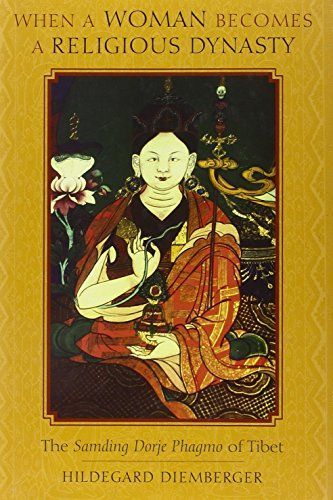
When a Woman Becomes a Religious Dynasty The Samding Dorje Phagmo of Tibet
In the fifteenth century, the princess Chokyi Dronma was told by leading spiritual masters that she was the embodiment of the ancient Indian tantric deity Vajravarahi, known in Tibetan as Dorje Phagmo, the Thunderbolt Female Pig. Hildegard Diemberger builds her book around the translation of the first biography of Chokyi Dronma recorded by her disciples in the wake of her death. The account reveals an extraordinary phenomenon: Chokyi Dronma not only persuaded one of the highest spiritual teachers of her era to give her full ordination but was also officially recognized as one of two principal spiritual heirs to her main master--and she went on to establish a long, influential lineage and Buddhist order herself. Diemberger offers a number of theoretical arguments about the importance of reincarnation in Tibetan society and religion; the role of biographies in establishing a lineage; the necessity for religious teachers to navigate complex networks of political and financial patronage; the cultural and social innovation linked to the revival of ancient Buddhist civilizations; and the role of women in Buddhism. Four stage-setting chapters precede the biography, and four concluding chapters discuss the establishment of the reincarnation lineage and the role of the current incarnation under Tibet's peculiarly contradictory communist system.